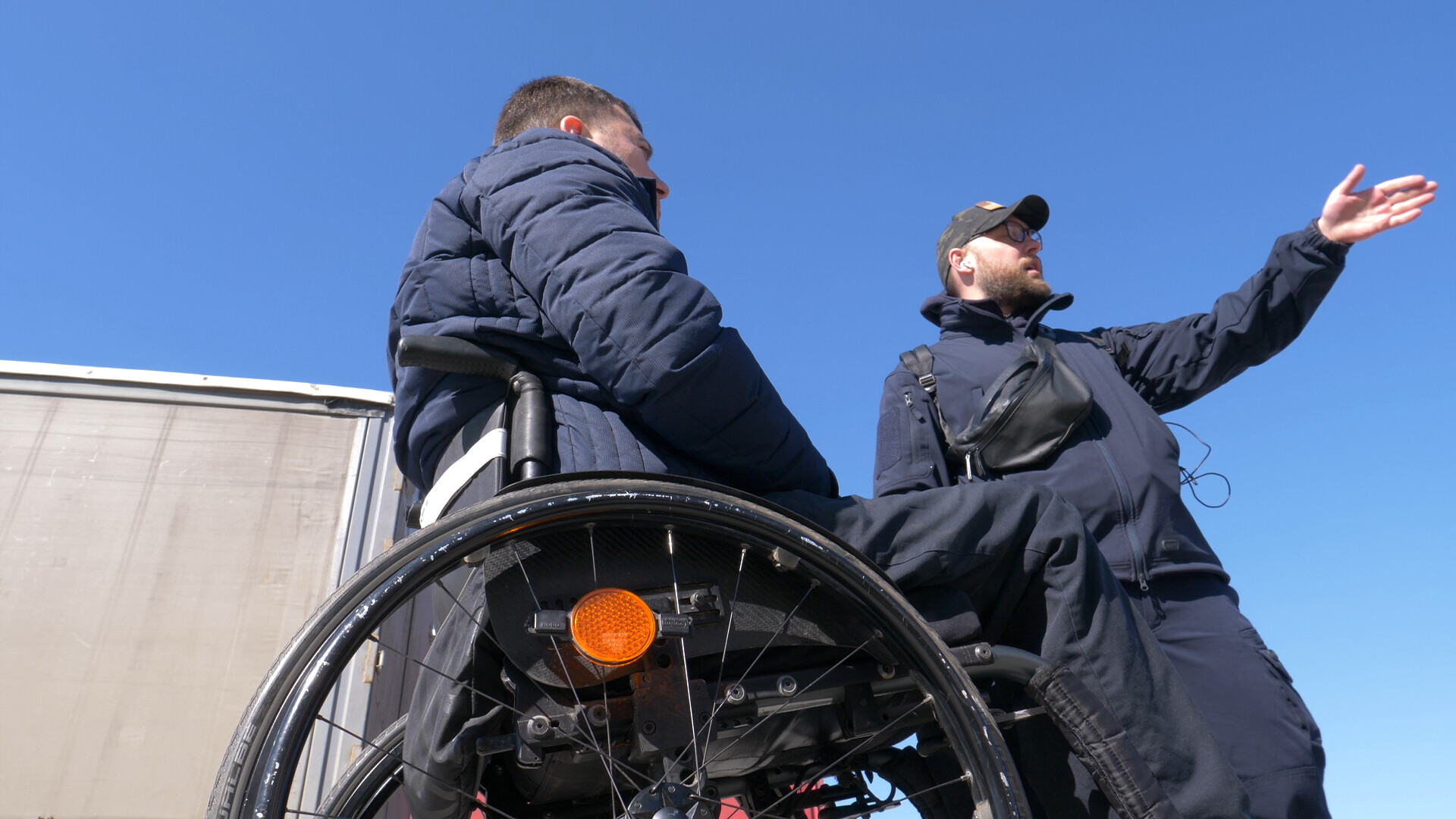UNDP Ukraine experts presented recommendations for better protecting the rights of persons with disabilities in crisis at the Human Rights Not a Conference
Securing the human rights of persons with disabilities during the war
December 16, 2022

Kyiv, 16 December 2022 – The urgency of protecting the human rights of persons with disabilities has become clear for the umpteenth time during the war. In Ukraine, there are more than 2.7 million persons with disabilities and because of the war hostilities, this number has been growing every day. According to the National Social Service of Ukraine, about 4.7 million people are registered as internally displaced, and of them about 1.2 million are elderly persons, and 172,000 have disabilities.
To discuss how to address the new issues related to evacuation and placement of persons with disabilities during the war, United Nations Development Programme (UNDP) experts participated in a thematic human rights workshop organized as part of the “Human Rights Not a Conference - 2022”. This is the seventh Human Rights Non-Conference taking place at the initiative of the Centre for Civil Liberties, which unites the human rights community, activists and representatives of the state to discuss the most pressing issues in the area of human rights protection.
Ms Olena Ivanova, Project Manager of UNDP’s “Support rehabilitation of People with Disabilities with injuries caused by the war” project, stressed at the event that timely identification and elimination of barriers and obstacles is needed to ensure the exercise of human rights.
“The war has had an unprecedented impact on the public service sector. We need to work together so that the rights and interests of people with disabilities are observed and protected at times of war and in the context of crisis response,” Ms Ivanova said.
“To respond to the new challenges better and more promptly, it is highly important to understand systematic issues regarding the social protection of the rights of persons with disabilities. This is why we at UNDP initiated holistic studies to identify gaps in the area of informing, evacuation, and placement of persons with disabilities,” she added.
During the event, UNDP experts have presented analytical materials as well as practical recommendations to help organizations and local governments better respond to new challenges.
Presentations included a guidebook entitled Inclusion of People with Disabilities in Humanitarian Response for institutions and agencies engaged in arranging for and providing assistance and services to population within humanitarian response. This guidebook contains recommendations on engaging persons with disabilities in humanitarian programming and programme implementation, arrangements for humanitarian aid provision, evacuation and shelters for the displaced population.
The experts also presented the Guidelines for Evacuation of People with Disabilities, based on the findings of the “Quick assessment of the experience of evacuating people with disabilities in Ukraine due to armed hostilities in 2022”, and analysis of the relevant legal and normative acts. The guidelines are intended to assist public authorities and legal entities with arranging evacuation, and ensuring the evacuation process and post-evacuation placement, so that the rights and interests of persons with disabilities are secured at an appropriate level during the processes in question.
Background:
The materials presented have been designed by UNDP as a part of the “Ensuring Gender-Sensitive Inclusion of Persons with Disabilities in Humanitarian Response” project, which is being implemented by a Joint Programme of UNDP, UN Women, the United Nations Children’s Fund and the United Nations Population Fund to support Ukraine to meet its obligations under the Convention on the Rights of Persons with Disabilities (UNCRPD).

 Locations
Locations



